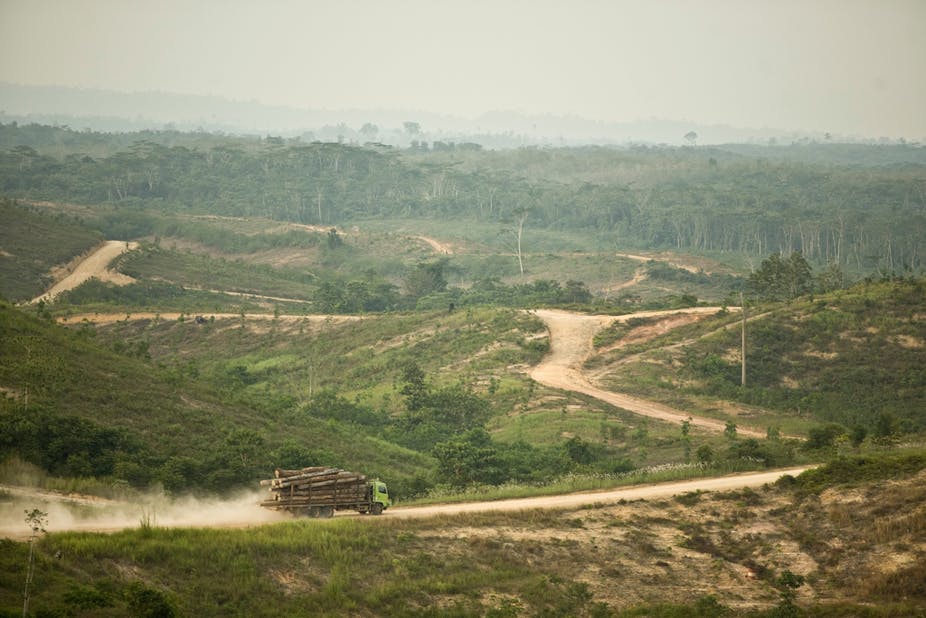Asia’s largest forestry, pulp and paper manufacturing company announced in Jakarta this week it has stopped all activities that lead to deforestation in Indonesia.
In a rare public event, the Chairman of Asia Pulp and Paper APP, Teguh Wijaya spoke in front of a group of international media, international and local NGOs and industry representatives. He announced that the company had stopped their machines while implementing a program aimed at not using any wood fibre sourced from natural forests in Indonesia.
Using natural forestry for industry is not uncommon around the world. The practice is common in Australia, North America and parts of Europe where the process is called “managed forestry”. However, the size of the activity in Indonesia and the perceived lack of good management practice have lead to international criticism for a number of years.
APP have been criticised for many years by environmental groups and have also by subjected to boycotts and protests regularly since early 2004. At the announcement there was a strong presence by the Indonesian Government with the Minister of Forestry encouraging other Indonesian firms to follow APP’s example.
The Government of Indonesia would have taken great interest in APP’s new direction. In recent years, President Susilo Bambang Yudhoyono has made an international commitment to reduce CO2 emissions by between 26% and 41% by 2020. The vast majority of the CO2 emissions reduction he committed would come from improved forestry activities.
There is a strong policy direction in Indonesia towards developing rapid growth plantations planted in degraded land areas. Stopping the clearing of natural forests and growing fast growth plantations could have a significant positive effect on carbon emissions in Indonesia in a very short time.
The major green groups Greenpeace and WWF have cautiously welcomed the announcement by APP. The Indonesian Government would view the success of the new strategy as very important in achieving the national carbon reduction goals in addition to the obvious other environmental positive outcomes.
According to Greenpeace, the positive announcement has come after many years of forest loss and destruction and it is therefore likely that enough land has been cleared for conversion to plantations for future wood supply to APP’s pulp and paper machines. This is highly likely the case as the company does have a target to be fully plantation reliant by 2015.
The extremely rapid growth cycle of forests in Indonesia will mean that trees planted this year will be ready for harvesting in five years time. This compares pretty favourably to the cold climate forests in Northern Europe and North America, where trees take up to 75 years to grow to maturity. According to Hylander, the amount of wood that can be harvested from each hectare in countries like Indonesia means significantly less land area is required when using a plantation method of wood supply.
Teguh Wijaya’s announcement was peppered with references to the reality of climate change and in particular how Indonesia will be affected by a changing climate. He noted cyclone Sandy in North America and the recent floods in Jakarta city as a sign of things to come. He mentioned that APP’s tree plantation program is currently planting 1 million trees each day. There are only a few pulp and paper companies in the world that are reliant on 100% plantation supply.
The remaining rich rainforests of Indonesia are significant in size despite the clearing activities over the past two decades. About 40 million hectares of forest remains untouched. However, the future pressures on Indonesia’s forests will come from a large and growing population.
Currently Indonesia has a population of almost 250 million. By 2050 the nation is expected to reach 300 million in a country smaller than Queensland. With rising sea levels there will be a significant reduction in land area and a number of large population centres will need to move away from the encroaching sea. At the moment up to 10 million people need to move, even before the full effects of rising sea levels have been felt.
The population pushing inland, growing consumerism and the demand for housing and building materials will all put pressure on timber supplies. The shift to plantations and this week’s announcement by APP is not only environmentally essential but it is also an economic imperative.

